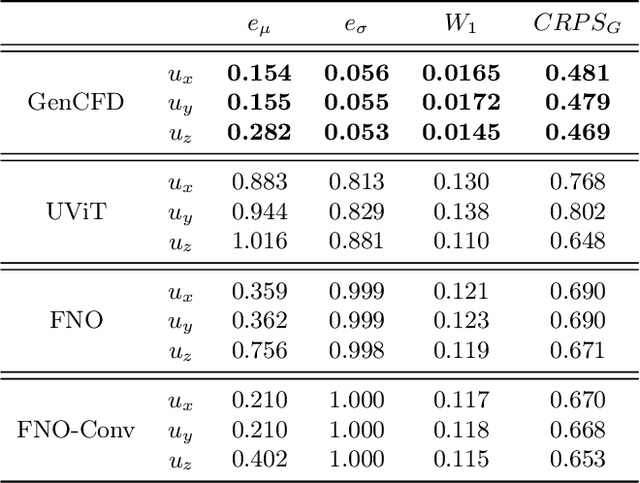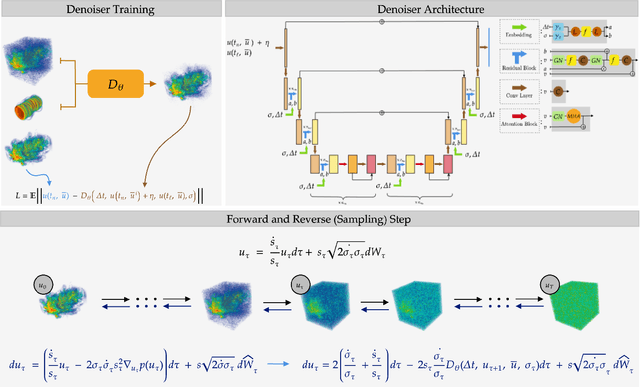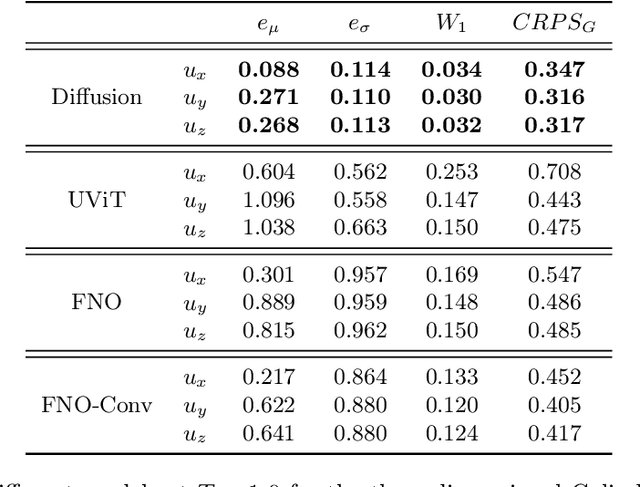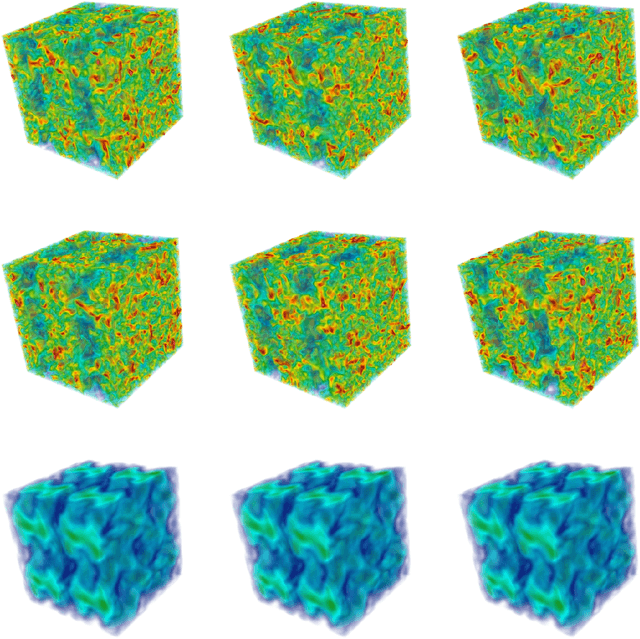Bogdan Raonić
RIGNO: A Graph-based framework for robust and accurate operator learning for PDEs on arbitrary domains
Jan 31, 2025



Abstract:Learning the solution operators of PDEs on arbitrary domains is challenging due to the diversity of possible domain shapes, in addition to the often intricate underlying physics. We propose an end-to-end graph neural network (GNN) based neural operator to learn PDE solution operators from data on point clouds in arbitrary domains. Our multi-scale model maps data between input/output point clouds by passing it through a downsampled regional mesh. Many novel elements are also incorporated to ensure resolution invariance and temporal continuity. Our model, termed RIGNO, is tested on a challenging suite of benchmarks, composed of various time-dependent and steady PDEs defined on a diverse set of domains. We demonstrate that RIGNO is significantly more accurate than neural operator baselines and robustly generalizes to unseen spatial resolutions and time instances.
Generative AI for fast and accurate Statistical Computation of Fluids
Sep 27, 2024



Abstract:We present a generative AI algorithm for addressing the challenging task of fast, accurate and robust statistical computation of three-dimensional turbulent fluid flows. Our algorithm, termed as GenCFD, is based on a conditional score-based diffusion model. Through extensive numerical experimentation with both incompressible and compressible fluid flows, we demonstrate that GenCFD provides very accurate approximation of statistical quantities of interest such as mean, variance, point pdfs, higher-order moments, while also generating high quality realistic samples of turbulent fluid flows and ensuring excellent spectral resolution. In contrast, ensembles of operator learning baselines which are trained to minimize mean (absolute) square errors regress to the mean flow. We present rigorous theoretical results uncovering the surprising mechanisms through which diffusion models accurately generate fluid flows. These mechanisms are illustrated with solvable toy models that exhibit the relevant features of turbulent fluid flows while being amenable to explicit analytical formulas.
Poseidon: Efficient Foundation Models for PDEs
May 29, 2024



Abstract:We introduce Poseidon, a foundation model for learning the solution operators of PDEs. It is based on a multiscale operator transformer, with time-conditioned layer norms that enable continuous-in-time evaluations. A novel training strategy leveraging the semi-group property of time-dependent PDEs to allow for significant scaling-up of the training data is also proposed. Poseidon is pretrained on a diverse, large scale dataset for the governing equations of fluid dynamics. It is then evaluated on a suite of 15 challenging downstream tasks that include a wide variety of PDE types and operators. We show that Poseidon exhibits excellent performance across the board by outperforming baselines significantly, both in terms of sample efficiency and accuracy. Poseidon also generalizes very well to new physics that is not seen during pretraining. Moreover, Poseidon scales with respect to model and data size, both for pretraining and for downstream tasks. Taken together, our results showcase the surprising ability of Poseidon to learn effective representations from a very small set of PDEs during pretraining in order to generalize well to unseen and unrelated PDEs downstream, demonstrating its potential as an effective, general purpose PDE foundation model. Finally, the Poseidon model as well as underlying pretraining and downstream datasets are open sourced, with code being available at https://github.com/camlab-ethz/poseidon and pretrained models and datasets at https://huggingface.co/camlab-ethz.
Are Neural Operators Really Neural Operators? Frame Theory Meets Operator Learning
May 31, 2023Abstract:Recently, there has been significant interest in operator learning, i.e. learning mappings between infinite-dimensional function spaces. This has been particularly relevant in the context of learning partial differential equations from data. However, it has been observed that proposed models may not behave as operators when implemented on a computer, questioning the very essence of what operator learning should be. We contend that in addition to defining the operator at the continuous level, some form of continuous-discrete equivalence is necessary for an architecture to genuinely learn the underlying operator, rather than just discretizations of it. To this end, we propose to employ frames, a concept in applied harmonic analysis and signal processing that gives rise to exact and stable discrete representations of continuous signals. Extending these concepts to operators, we introduce a unifying mathematical framework of Representation equivalent Neural Operator (ReNO) to ensure operations at the continuous and discrete level are equivalent. Lack of this equivalence is quantified in terms of aliasing errors. We analyze various existing operator learning architectures to determine whether they fall within this framework, and highlight implications when they fail to do so.
Convolutional Neural Operators
Feb 02, 2023Abstract:Although very successfully used in machine learning, convolution based neural network architectures -- believed to be inconsistent in function space -- have been largely ignored in the context of learning solution operators of PDEs. Here, we adapt convolutional neural networks to demonstrate that they are indeed able to process functions as inputs and outputs. The resulting architecture, termed as convolutional neural operators (CNOs), is shown to significantly outperform competing models on benchmark experiments, paving the way for the design of an alternative robust and accurate framework for learning operators.
 Add to Chrome
Add to Chrome Add to Firefox
Add to Firefox Add to Edge
Add to Edge